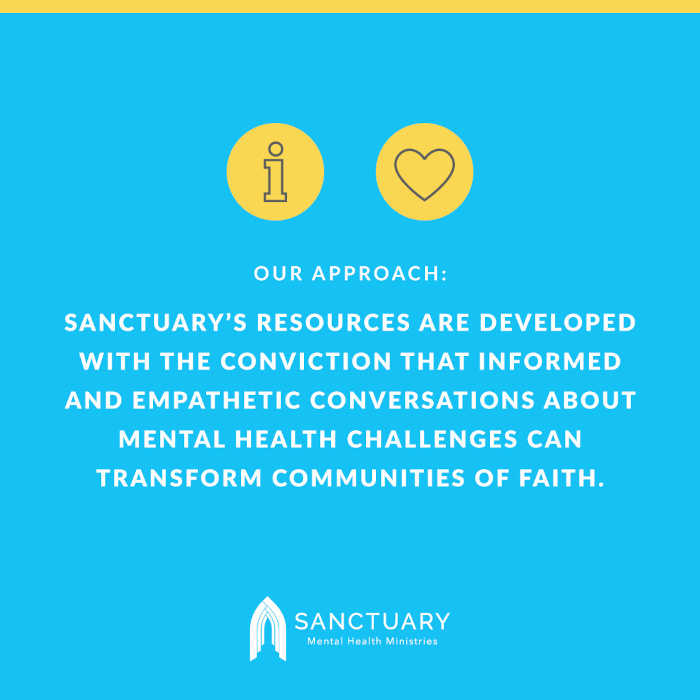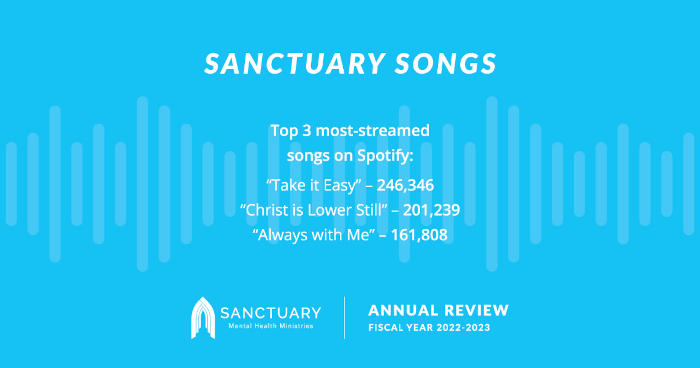If we’re experiencing mental health challenges, or are seeking to assist others, then the support and understanding of a church community can be invaluable. During the Covid 19 pandemic, it was rare to find a day that didn’t contain a headline addressing mental health. Yet beyond the collective crisis we experienced, a picture has emerged of a growing issue and changing needs. In January 2024, a sample of 2000 people in the UK revealed that 15.5% declared that their mental health was ‘the worst it had ever been’ (Forth 2024 Mental Health report). Tragically, 6069 suicides were registered in England and Wales in 2023 (ONS 2023 report) - an increase of over 400 compared with 2022 and the highest rate seen since 1999)2. How can we best respond?
Learn from the Bible
The Bible offers us a picture of a God who is deeply compassionate in our times of suffering, offering a rich vision of God’s care for each of us. The Old Testament prophets describe the coming messiah as a shepherd who tenderly gathers his lambs in his arms (Isaiah 40:11), and as the one who bears our griefs and carries our sorrows (Isaiah 53:4). In the New Testament, Hebrews describes Jesus as our great high priest who sympathises with our weaknesses (Hebrews 4:15). Each of these verses reminds us that God cares deeply and understands what it is like to suffer. Pain can make us feel very isolated, but the truth is that God is with us in our darkest moments.
Balance care with respect
How can we draw inspiration from God’s example? A good starting point lies in honouring each person’s experience as unique. This principle helps us to listen with care and compassion and, where we can, suspend judgment. Many people who are closely involved in the recovery journey of a friend find it helpful to establish the goal of balancing both care and respect. Care is demonstrated when you act on behalf of another individual, while respect is demonstrated when you empower an individual to take action. The balance between care and respect will vary depending on the age, ability and circumstances of the individual experiencing a mental health challenge. However, maintaining this balance can help you avoid the extremes of offering too little respect (thus encouraging unhealthy dependency) or offering too little care (and withholding necessary assistance). Both can help a church become a community that is positive about mental health.

Learn from each other’s experiences
The Sanctuary Course features the real-life stories of Christians who are living with a mental health challenge. The course also covers what good mental health support looks like and ways to ensure that professional help is offered when it is most needed. Studies have shown that those leading churches are often the first port of call when somebody is experiencing a mental health difficulty, but everyone in your church community has a helpful role to play.
Worship with a full-colour palette of emotion
Reviewing aspects of our worship can also bring about positive change. As we affirm God’s goodness in all things, our worship could also reflect the reality of fluctuating moods and seasons of loss. Depression or anxiety are among the most common mental health conditions – it makes sense, then, to include these experiences in our life of worship.
Having the opportunity to lift one’s mood with others can be helpful for many, but worship that only focuses on the positive side of faith can sometimes jar. Songs and prayers that mirror the psalms of lament can offer balance. In such psalms, even the darkest expressions of despair are ultimately hopeful, recognising that God is in the darkness, affirming ‘and yet I will praise the Lord’. Equally, offering prayer that is respectful of the fact that our emotions are God-given and need to be acknowledged rather than changed or fixed might also be helpful. Choosing not to shy away from suffering and including space for these expressions can create safety and healing for those enduring the more challenging chapters of life.
Fischy Music have lots of intergenerational songs that express big and difficult emotions e.g. Bring it all to me; When people are cruel.

Show people that they are accepted and needed
Being deprived of life’s basics will have a major impact on any person’s mental well being. If the quality of our housing, relationships and physical health is compromised, this will of course impact our mental health. While these issues need to be directly addressed, it is all the more important that the Church is a community where we find acceptance and value in who we are, not only what we can do and what we have. This can have a positive impact on how we build relationships with one another. Mental health theologian Revd Professor John Swinton stresses the value of being able to communicate to each person, ‘It is good that you exist, I’m glad that you’re here.’ This kind of unconditional acceptance is a great thing.
Yet, opportunities to encourage the sharing of our God-given gifts are also key. Part of creating communities that are truly diverse will also involve eliciting the unique qualities and perspectives each person can offer. Whether our gift is preaching, praying, serving, leading, creating, supporting or fixing, we all have a contribution to make. Those of us who live with long-term mental illness can be part of a community where we find meaning and purpose through building God’s kingdom together. Indeed, this may be foundational to our recovery.
We will not get it right every time, and that brings vulnerability; but we can go a long way through compassionate listening. Many of us need assurance we are not alone. Minister and theologian Monica Coleman, speaking in The Sanctuary Course, affirms this: ‘God is here – and I think a really good church community would say, “And we are too.”’
Taking it further
■ Share The Sanctuary Course with your small group.
■ Listen to Sanctuary Songs, a collaborative worship project from The Porter’s Gate.
■ Look out for Corin's interview on the Roots for Churches podcast and YouTube channel.